In this text, Tajik blogger Roxana Burkhanova describes, in Russian, the history and current status of Muslims in Russia. Islam is the largest minority faith in Russia and Muslims are a growing and important demographic there, especially among immigrants from Central Asia. The material below details both the challenges that Muslims have faced in integrating to wider society and the remarkable revival that Islam has enjoyed in Russia.
This is part of a larger series of intermediate Russian lessons known as Моя Россия, in which Roxana explores minority populations in Russia as well as economic and demographic issues there. Моя Россия builds upon Olga’s Blog, another set of intermediate Russian lessons that give shorter texts that focus more on daily life and cultural issues. All of these lessons have been sponsored by SRAS, an organization that encourages the study of Eurasia from abroad through free resources and offers study abroad programs in Eurasia.
We will start with a brief synopsis in English before presenting the Russian text. As the Russian text was originally written in 2016, we have also provided a small update in English to the information presented there. All boldface words are vocabulary words that are defined and discussed below. Red words and phrases are part of the grammar lesson included below that. Asterisks indicate slang.
Muslims and Islam in Russia – Synopsis and Update in English
Although Roxanna’s text was written in 2015, most of it holds true today. Islam remains Russia’s largest minority religion, and its fastest growing. Russia’s largest source of migrants comes from Central Asia, where most of the population is Muslim. Russia’s indigenous Muslims continue to have larger families than any other demographic. Muslims remain majority populations in many regions, particularly along the Volga and in the North Caucasus.
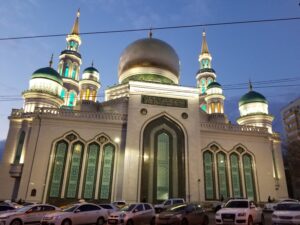
Difficulties to studying Islam in Russia also remain. For instance, estimates of the Muslim population vary. Many Muslims are immigrants and some are illegal immigrants and thus harder to poll. Another challenge, which Roxanna does not mention, is that the survey questions can differ wildly. Some ask if the respondent is a Muslim while defining what a Muslim is – such as “Do you attend a mosque at least once a week?” This can limit who is counted as a Muslim by the study, especially in a country like Russia where many who identify as Muslim do not pray regularly or obey all rules of halal, for instance.
On the other hand, as religion has been historically tied to ethnicity in Eurasia, some authors have tried to claim that all traditionally Muslim ethnicities counted by Russia’s state census represent Russia’s Muslim population, giving an inflated estimate. Further complicating matters, many Muslims in Russia do not fit neatly into traditional categories such as Sunni or Shia, with a significant portion identifying simply as Muslims without further specification.
Russia’s Muslim populations have also been affected by the war and by the effects of sanctions. For instance, many migrants have, despite rising wages in Russia, been discouraged from staying in or coming to the country by worsening exchange rates and difficulties in transferring money out of the country.
Additionally, Russia has heightened its security regime under wartime. This has included increased border security and migration control. The terrorist attack on Crocus City Hall in March, 2024 made this situation worse. Security in general was tightened but, as the Russian media repeatedly identified the attackers as citizens of Tajikistan. Tajiks are some of Russia’s most visible immigrants and, due to this, immigrants in general became still more a target of suspicion.
Low-level Islamophobia has also long been a problem, especially in regions without a large indigenous Muslim population. Moscow and St. Petersburg have absorbed concentrated number of Muslim immigrants since the fall of the USSR. However, the construction of mosques to serve this population has been hindered primarily by residents resisting having them placed in their neighborhoods, fearing that mosques will attract illegal immigrants and crime. To this day, Moscow has only four major mosques for a Muslim population of 1-2 million.
Muslims today enjoy higher state support than they have under any government in Russian history. They are regularly consulted on issues of social and regional development and receive significant government funds to build and refurbish mosques in areas where they have large indigenous populations. However, there are still many challenges in studying this fascinating and long-standing minority in Russia and many challenges in fully integrating them to Russian society.
Религия в России – Ислам
В прошлый раз мы говорили о Русской православной церкви и о язычестве в России. Сегодня же давайте поговорим о самом большом российском меньшинстве – о мусульманах. Мусульмане являются самым крупным религиозным меньшинством в России. Некоторые регионы Поволжья и Кавказа были обращены в ислам задолго до того, как они присоединились к Российскому государству. После их захвата монголо-татарами, терпимо относившимися ко всем религиям, ислам разошелся по всей территории Золотой Орды. Новым центром ислама стало Казанское ханство, захваченное войском Ивана Грозного в шестнадцатом веке, как и многие другие части бывшей Монгольской империи.
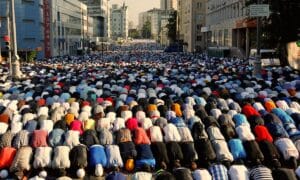
На данный момент происходит возрождение ислама в России. Многие регионы России, такие как республики Кавказа и Татарстан, имеют мусульманское большинство. В таких регионах восстанавливаются мечети, разрушенные в советские годы, и строятся новые. В Москве же в мечетях места для мусульман катастрофически не хватает. Москва – многоконфессиональный город, однако мечетей в столице всего лишь четыре. Строительство новых мечетей усложняется тем, что многие москвичи выступают против этого. Они опасаются, что с появлением новой мечети в их район потянутся мусульмане, а среди них и иммигранты (особенно нелегальные), что ухудшит криминальную обстановку.
Проблема миграции и роль мусульман в России
Большая часть мусульман в стране на самом деле родилась в России. Мусульмане – одна из самых быстрорастущих категорий населения; быстрый рост обеспечивается высоким естественным приростом, так как традиционно мусульманские семьи гораздо более многодетны, чем семьи других религиозных категорий населения. К тому же в России довольно много мусульман среди иммигрантов, так как большинство иммигрантов приезжают из Средней Азии, в которой преобладает ислам. Так что логично предположить, что большинство нелегальных иммигрантов в России – мусульмане. Это одна из причин, почему так сложно подсчитать реальное количество мусульман в России, ведь нелегальные иммигранты не участвуют в опросах и не встают на учет в ФМС. Опасных преступников среди нелегалов меньшинство, а нелегальных иммигрантов, по данным 2014 года, не больше, чем легальных – примерно такое же количество. Поэтому будет неверным полагать, что при строительстве новой мечети к ней сразу же потянутся сплошные преступники. Подавляющее большинство нелегальных мигрантов-мусульман нельзя отнести к экстремистам и преступникам, таких людей среди них незначительное число, большинство лишь стремятся прокормить свои семьи.
Несомненно нельзя игнорировать некоторую степень исламофобии, распространённую среди не-мусульман России; но в целом нельзя говорить об анти-исламской политике Российского государства. Государственная поддержка мусульман особенно заметна в районах с преобладающим мусульманским населением. Особенно в последние годы проводится политика, направленная на развитие толерантности среди населения.
Стоит отметить, что Чеченская республика, регион со множеством проблем, является в большинстве своем исламской, когда как Татарстан, в котором более 50% населения мусульмане, – один из самых экономически развитых регионов России.
Будущее мусульман в России
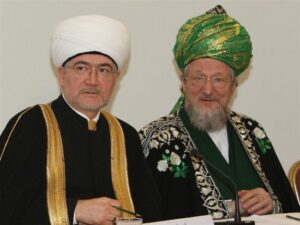
Поощрение поднятия уровня толерантности среди населения – одно из важнейших направлений российской политики в ближайшем и дальнейшем будущем. Дело в том, что население российских мусульман растет, так что нельзя не учитывать, что вскоре они будут представлять отдельную политическую силу, отстаивающую свои интересы. Проблемы иммиграции вполне могут стать еще более трудными для разрешения из-за непростой политической и экономической ситуации в стране. Исходя из всего вышесказанного, сохранение хороших отношений с разнообразным мусульманским населением России является важным шагом на пути к достижению стабильности в стране. И конечно, подобные шаги должны быть скоординированы и с Русской православной церковью, и с постоянно растущими националистическими группами.
История ислама в России уходит в далекую старину, он является неотъемлемой частью российской культуры, а значит, что и в российском будущем ему отведена особая роль.
Итак, в следующий раз мы обсудим другую, не менее важную для российской истории и культуры религию – буддизм.
Vocabulary and Cultural Annotations
Поволжье – The Volga Region; this is a historical region in Russia that encompasses territories adjacent to the flow of the Volga River.
Кавказ – The Caucasus is a region at the border of Europe and Asia, situated between the Black and the Caspian seas. Here we only discuss the Russian (Upper) Caucasus and its republics.
Монголо-татары (Монгольская империя) – The Mongol Empire (13th-14th century); Also known as “The Horde” (Орда) in Russian history, this empire emerged from the unification of nomadic tribes in Mongolia. At its height, it stretched from Eastern Europe to the Sea of Japan. Later the empire split and fractured into separate khanates, one was Golden Horde.
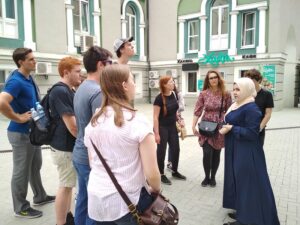
Золотая Орда – The Golden Horde (1240s – 1502); at its peak it included Eastern Europe and extended deal into Siberia and stretched to the Black Sea in the South. In 14th century it broke into smaller khanates (see below).
Казанское ханство – Khanate of Kazan (1438 – 1552), was one of khanates that emerged when the Golden Horde collapsed. Its capital was the city of Kazan. It warred with and was eventually conquered by Ivan the Terrible.
Исповедать – To confess; to profess
Мазхаб – madhhab; a school of thought within Islamic jurisprudence. In the first 150 years of Islam, there were numerous madhahib, most of which have become extinct or merged with other schools. The Amman Message, which was endorsed in 2005 by prominent Islamic scholars around the world, recognized four Sunni schools (Hanafi, Maliki, Shafi’i, Hanbali), two Shia schools (Ja’fari, Zaidi), the Ibadi school and the Zahiri school.
Суфизм – Sufism; inner mystical philosophical dimension of Islam. Sufis are characterized by their asceticism and high spirituality.
Республика Дагестан (Дагестан) – The Republic of Dagestan (also spelled Daghestan), is a federal subject (a republic) of Russia, located in the North Caucasus region. Its capital and largest city is Makhachkala, located at the center of Dagestan on the Caspian Sea.
Чеченская Республика (Чечня) – Chechen Republic (Chechnya); it is located in the North Caucasus, the capital of the republic is the city of Grozny. After the USSR, there were two wars in Chechnya between separatists and Russian forces. These were the First and Second Chechen Wars. Now Chechnya is being reconstructed but sporadic fighting continues in the mountains and southern regions of the republic.
Республика Ингушетия (Ингушетия) – The Republic of Ingushetia (Ingushetia); a federal subject of Russia (a republic), located in the North Caucasus region. Its capital is the town of Magas.
Сунниты – Sunni muslims
Шииты – Shia muslims
Татарстан – Tatarstan is a Russian republic located in the Volga Federal District. Its capital is the city of Kazan.
ФМС (Федеральная миграционная служба) – Russia’s Federal Migration Service is tasked with documenting and regulating Russia’s migrants.
Исламофобия – Islamophobia.
Преобладающий – predominant.
Быстрорастущий – fast-growing.
Естественный прирост – natural growth (natality).
Многодетная семья – a family with many children.
Средняя Азия – Central Asia
Punctuation Focus: Commas and Dashes
When two clauses are placed next to each other with one used to identify or give more information the other, this is called “apposition.” One such example would be: “Vladimir Putin, the President of Russia.”
Appositions can be singular or extended. Both singular and extended appositions can either be separated by a dash or marked with commas. We talked about separating extended apposition with a dash in the last lesson. Now we are going to start talking about marking singular appositions with either a coma or dash and extended appositions with a dash.
!!! A proper noun is a noun that in its primary application refers to a unique entity, such as London, Jupiter, Sarah, or Microsoft, as distinguished from a common noun, which usually refers to a class of entities (city, planet, person, corporation), or non-unique instances of a specific class (a city, another planet, thesepersons, our corporation).
I. When apposition is singular you have to use a hyphen. You can’t use hyphen if:
the apposition is before a defined noun and can be replaced by an adjective with the exact same meaning and exact same root.
Ex.: красавец мужчина (= красивый мужчина);
in combination with two common nouns (not proper noun) one means “genus” and other means “species” (hierarchy):
Ex.: дерево дуб; суп харчо; газ кислород;
(tree – kind of tree) (soup – kind of soup) (gas – kind of gas)
the second noun is a proper noun:
Ex.: река Москва (but: Москва-река)
the first noun is one of the world like “ товарищ”, “гражданин”, “господин” and so on (when they are first they mean address, when they are second they have completely different meaning):
Ex.: гражданин судья, господин посол;
II. Any apposition (either extended or singular) has to be marked with commas (no dash) on both sides if they define personal pronoun.
In this case it doesn’t matter if a defined object or person is before or after apposition.
Ex.: Он, инженер, очень помог им.
Инженер, он очень помог им.
Он, талантливый инженер, очень помог им.
Талантливый инженер, он очень помог им.
Don’t forget to check if there’s a verb in your sentence. If there’s no verb then a noun or a phrase with a noun that you can mistake for an apposition is a compound nominal predicate.
Ex.: Он, инженер, помог им. BUT: Он инженер.
III. If a defined word is a noun then you have to mark apposition with commas if:
an apposition is extended and situated after a defined word (very rarely if it’s before a defined word).
Ex.: Песня, крылатая птица, смелых зовет в поход.
there’s only one apposition and it’s singular and stands after a common noun that has other words that give addition information about it.
Ex.: Он увидел своего друга, охотника, и повеселел. BUT: Он увидел друга-охотника.
apposition is separated form a defined object or a person by other words in a sentence.
Ex.: нам помог сын нашего соседа, подросток.
IV. Apposition that defines a proper noun is marked with commas if:
is situated after a defined word.
Ex.: Моя сестра Таня, художница, очень талантлива.
Иван Петрович, интересный собеседник, был душой каждого общества.
is situated before a defined word but has an additional adverbial meaning.
Ex.: Химик по образованию, Ломоносов особенно много сделал для этой науки.
(много сделал почему?)
(cделал много для науки химии, потому что был химиком)
BUT:
Русский химик Менделеев прославился на весь мир.
Examples from Literature
В белом плаще с кровавым подбоем, шаркающей кавалерийской походкой, ранним утром четырнадцатого числа весеннего месяца нисана в крытую колоннаду между двумя крыльями дворца Ирода Великого вышел прокуратор Иудеи Понтий Пилат. (М. Булгаков «Мастер и Маргарита»).
Тем более, что лицом была похожа на мать, а мать, родом какая-то княжна с восточной кровью, страдала чем-то вроде черной меланхолии. (И. Бунин «Темные Аллеи»)
– Князь Лев Николаевич Мышкин, – отвечал тот с полною и немедленною готовностью. (Ф. Достоевский «Идиот»)
You’ll Also Love
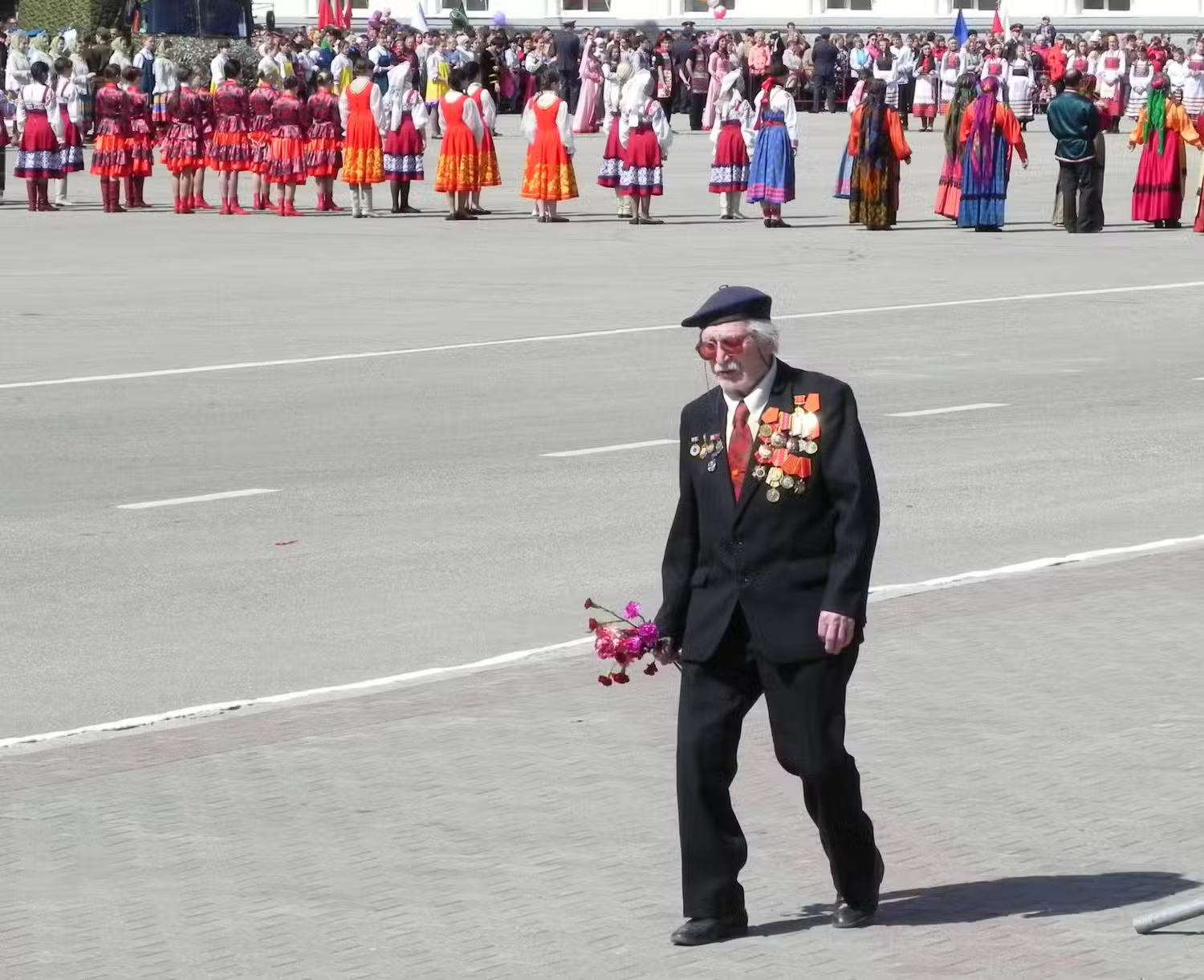
Victory Day in Russia and Other Countries: Vocabulary and History
Victory Day is a holiday of significance in many Eurasian cultures, but particularly stands out in Russia. People pay homage to veterans and remember the sacrifices that were made for the sake of victory in WWII. While Victory Day is deeply ingrained in Russia’s national identity, its observance across Eurasia reveals nuanced changes or adaptations […]
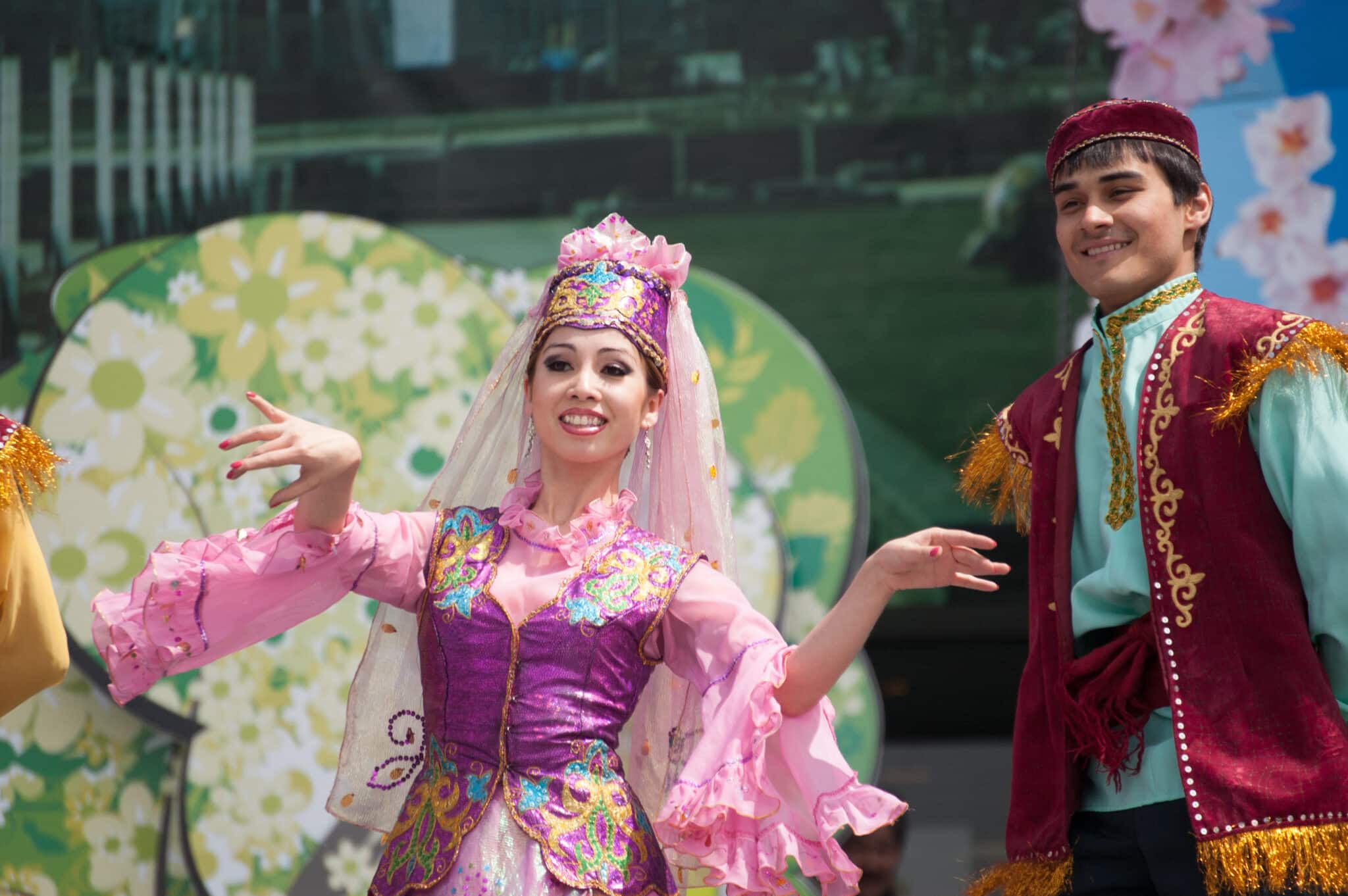
The Talking Kazakh (Qazaq) Phrasebook
The Talking Phrasebook Series presents useful phrases and words in side-by-side translation and with audio files specifically geared to help students work on listening skills and pronunciation. Below, you will find several useful phrases and words. To the left is the English and to the far right is the Kazakh translation. In the center column […]
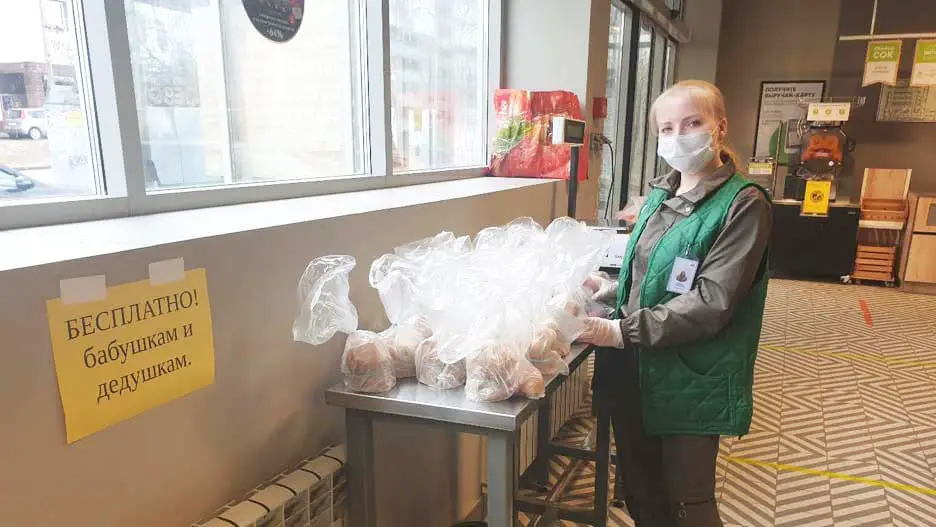
Quarantine Diaries: Добрые дела
Quarantine Diaries is a series of free language lessons from SRAS. Each lesson can take a variety of forms but all focus on building intermediate and advanced vocabulary and listening skills. Read the text and familiarize yourself with the new vocabulary (you can hover over the bold Russian to reveal its English translation). Then, watch […]
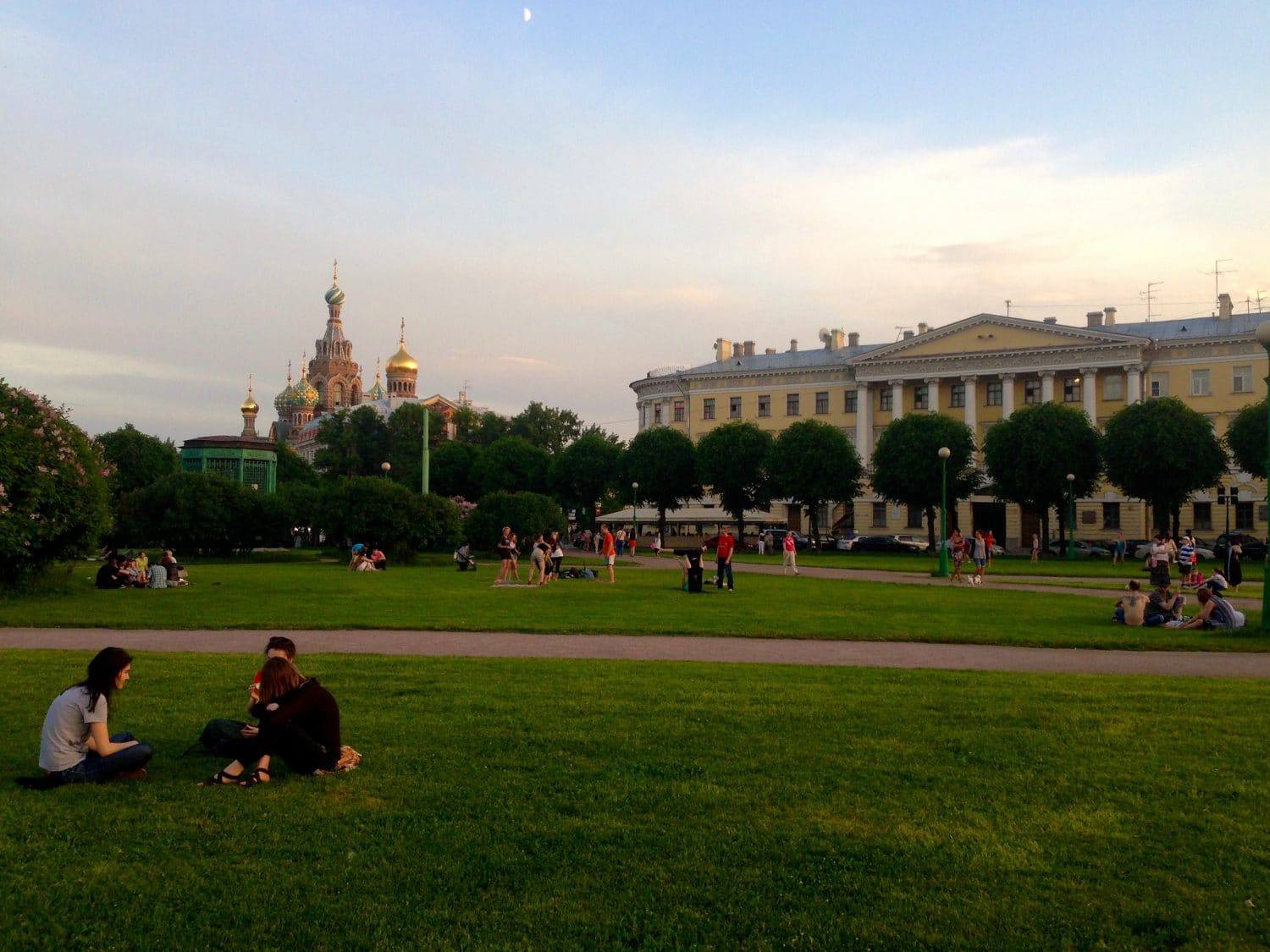
Off to Petersburg, Russia’s Cultural Capital: Моя Россия Blog
Below, Tajik blogger Roxana Burkhanova describes, in Russian, the place of St. Petersburg in Russian culture. She discusses the city’s history as well as its literary heritage, its nightlife, and even how people from Petersburg speak their own, slightly different dialect of Russian. The text was originally written in 2015 and thus references times before […]
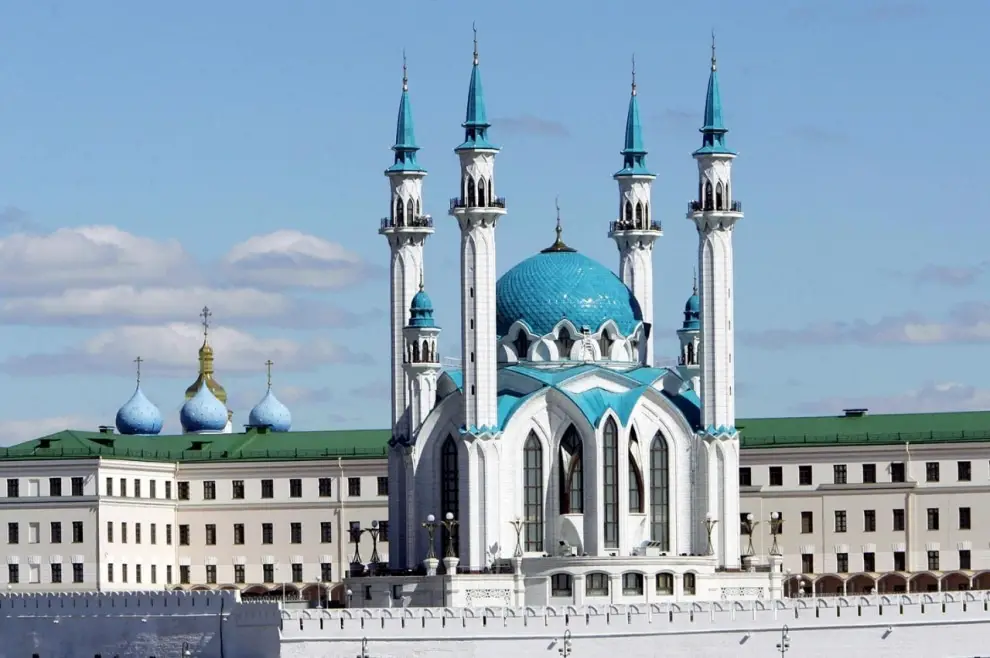
Islam in Russia: Моя Россия Blog
In this text, Tajik blogger Roxana Burkhanova describes, in Russian, the history and current status of Muslims in Russia. Islam is the largest minority faith in Russia and Muslims are a growing and important demographic there, especially among immigrants from Central Asia. The material below details both the challenges that Muslims have faced in integrating […]




